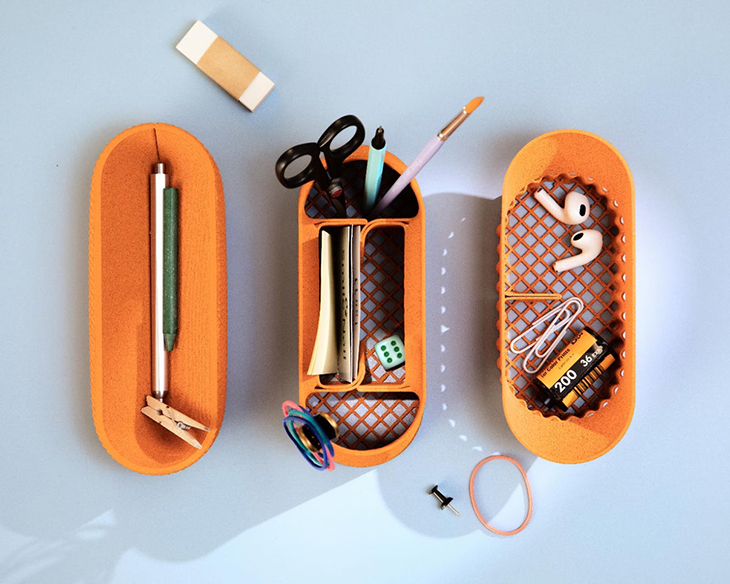
Milan is emerging as a pioneering hub for eco-chic design on the Italian Peninsula, thanks to an innovative company that dared to invest in transforming food waste into 3D printing materials. This forward-thinking company has successfully turned lemons and oranges from the islands of Naples and coffee grounds from the bars of Milano into sustainable and aesthetically pleasing tabletop furniture.
The product range includes table lamps, incense holders, magazine racks, key bowls, clocks, and bookends, all crafted with an eco-conscious approach. Although these eco-friendly furnishings may come with a higher price tag, the company reports that they are gaining popularity within their targeted market. What sets this Milan-based firm, known as Krill, apart is its patented printing material called ReKrill.
The ReKrill printing goo is a proprietary technology that not only transforms food waste into functional and stylish items but also contributes to environmental conservation. Krill proudly states that for every kilogram of ReKrill printing material produced, one kilogram of carbon emissions is prevented from entering landfills.
The positive impact of Krill’s sustainable approach has already garnered attention from prominent corporations. San Pellegrino and Four Seasons are among the businesses that have embraced Krill’s eco-friendly products, showcasing a growing interest and adoption of sustainable practices within the corporate world. As Milan continues to position itself at the forefront of eco-chic design, Krill’s innovative approach to turning food waste into functional art serves as a beacon for a more sustainable and environmentally conscious future.
“If all that furniture was made using our materials, we would be able to recover them, crush them, and print other furniture with the same material,” Marco Di Maio, director of operations at Krill, said when he spoke to CNN. “If, by mistake, any of our material ends up in the ocean, it is biodegradable and doesn’t produce any microplastics.”
Additionally, there is the option of repurposing the furniture into compost, offering an eco-friendly solution. In doing so, even if you have a persistent pet with a penchant for gnawing on chair legs, there is no risk of poisoning. This approach aligns with Krill’s commitment to minimizing landfill waste. In furtherance of this mission, Krill has formed partnerships with non-profit organizations dedicated to diverting urban food waste, such as coffee grounds, into innovative and sustainable recycling initiatives.
What are your thoughts? Please comment below and share this news!
True Activist / Report a typo


